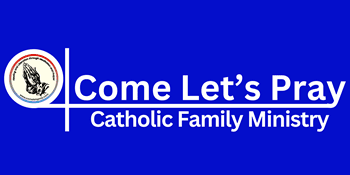WHAT IS ANCESTRAL CURSE?
A lexical definition defines ‘ancestor’ as one from whom a person is descended, whether on the father’s or mother’s side, at any distance of time; it can be a progenitor or a forefather. From the same source, we learn that a ‘curse’ is a prayer or imprecation that harm may befall someone. Therefore, ‘Ancestral curse’ describes the cumulative effect on a person (usually a descent) of things that their ancestors did, believed or practiced in the past, and a consequence of an ancestor’s actions, beliefs and sins being passed down to their descendants. Sometimes it is also called generational curse but mean the same thing. In Christianity this teaching is popularized by the bible teacher and minister late Derek Prince.
THEOLOGICAL PROBLEM OF ANCESTRAL CURSES
But adherents of ancestral curse hold that ‘a specific curse’ in the form of some evil omen (distinct from the general consequence of sin of Adam) which plagues an individual or a family is punishment for some particular iniquity or sin committed by an ancestor. Victims of ancestral curses are said to have no power over the evils that plague them. They are considered to be innocent and inescapable victims of their cursed fate. Their doom arises not from their own wrongdoing but out of the fact that someone in their past genealogy committed some sort of wickedness or victims of a curse by a wicked ancestor
DOES THE BIBLE CONFIRM ANCESTRAL CURSES TO BE REAL?
Adherents of ancestral curse mostly justify their claim by laying hand on four Old Testament Bible verses that speak of God ‘visiting the iniquity of the fathers unto the third and fourth generations of those who hate God’ and interpret it to mean ancestral or generational curse (Ex. 20:5; 34:7; Num. 14:18 and Deut. 5:9). But is this the point? Does it favour such an interpretation?
On close examination of the four biblical passages one will discover it forms part of the first commandment of the Decalogue given by God to Moses prohibiting the Israelites to have another god aside Yahweh. The complete words of the commandment are rendered in Exodus 20:1-6 where it first appeared in the Bible and includes the words: “…For I, the Lord your God, am a jealous God; punishing the children for the sins of their fathers to the third and fourth generation of those who hate me…” (Ex. 20:5). Other passages excludes the phrase “of those who hate me” pointing to a redactive action. As such a holistic interpretation of the entire text makes us understand that God’s wrath is for those who hate Him, not because of the sins of forefathers. This means that children will experience the same consequences like their forefathers if they continued to live like their forefathers. This Personal responsibility towards sin is reflected immediately in Numbers 14:18 where God punishes only those who sinned by worshipping the molten calf (Num. 14:22) but not their unborn generation. God, through the prophet Ezekiel, corrects this ‘erroneous’ notion of ancestral/generational curse that was prevalent in Israel when he says: “the person who sins is the one who will die” (Ezek. 18:20). Jesus Christ also corrects this traditional view in the mind of his disciples at the healing of the man born blind: “neither his own sins nor those of his parents, he was born blind so that God’s work might be revealed through him” (Jn. 9:3). In fact it is the consequences of a man’s sins that haunt him, not God.
CONSEQUENCES OF SIN ARE PASSED DOWN NOT CURSES
Consequences of sins are results of sinful actions. Every sin or evil act has a resultant consequence which can affect one personally or affect others. Just like our first parents Adam and Eve, once we soil our baptismal purity with a mortal sin we are never the same again, even after confession and penance because every sin committed comes back to haunt us, or others around us physically or psychologically. For instance, if one drinks to stupor, drives and then gets in an accident which killed someone and causes him paralysis, his sin was getting drunk and endangering himself and others by driving. Even after confession and extreme repentance and forgiveness from God, that won’t erase the fact he killed someone; he will remain paralyzed unless healed by a miracle. Likewise children born from violent marriages stay with the trauma all their lives. Many African societies are poor and experiencing hardships today because their forefathers mismanaged public funds. But curses are not passed down; it remains with its victim.
ANCESTRAL CURSES ARE NOT HEREDITARY
A person who suffers from a hereditary illness should not think he is under an ancestral curse. This is one of the dangerous fallacies of ancestral curse by admitting that negative traits were caused by a curse. Heredity is the passing or transmission of characteristics or traits from parents to offspring. These traits could be positive or negative attributes like brilliance, braveness, beauty, skin colour, illness (sickle cell), diabetes, etc. Heredity is a biological process or natural phenomenon not spiritual.
ANCESTRAL CURSE AND EFFECTS OF COVENANTS
Another broad phenomenon mostly confused with ancestral curses in Africa is covenants. A covenant is a formal alliance or agreement made by a deity with a religious community, family, person or humanity in general. Covenants could be contracted between persons, between family/community with a deity, and in some cases, one can represent or stand in for his/her child; persons can also represent family/community in a covenant and it will be binding. Before the advent of Christianity many African cultures had systems of traditional religious beliefs known widely today as African Traditional Religion (ATR). Like other religions, covenants form a major part of ATR whereby some communities, persons or family enter into covenantal relationships with spirits or deities, and these covenants have stipulations and sometimes disastrous consequences when the conditions are violated depending on the type of covenant and deity involved. In such situations certain omen caused by the deity haunts the person, family or community bound by the covenants. If this happens, the deity is said to be offended and must be appeased. Some Christians in Africa who unknowingly are bound by such covenants entered by an ancestor suffer this fate until such covenants are identified, analyzed (in order to know the type of covenant) and then destroyed through a prayerful agreement and renunciation of the covenant.
EVALUATION
REFERENCES
1. James, G.A.N, The Myth of the Generational Curse, Xulon Press, 2007.
2. Isaac Makashinyi, The Truth Behind Generational Curses in The Gospel Collation (Africa Edition), January 22, 2019 https://africa.thegospelcoalition.org/article/council conversations-episode-1/
3. Father Carota, Traditional view of the Consequences of Sin in Traditional Catholic Priest, August 26, 2013. https://traditionalcatholicpriest.com/2013/08/26/traditional-view-of-the-consequences-of- sin/
4. Catechism of the Catholic Church, The Consequences of Adam’s sin for Humanity, n. 402
5. The New Community Bible (Catholic Edition)
6. Cambridge Advanced Learner’s Dictionary (3rd Edition)









